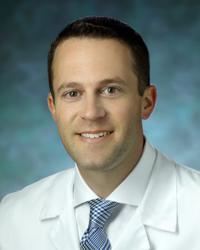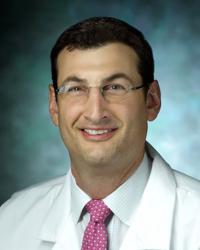Research Lab Results
-
Paul Rothman Lab
Research in the Paul Rothman Lab has focused on cytokines. We’ve investigated the role these molecules play in the normal development of blood cells as well as the abnormal blood-cell development that leads to leukemia. We’ve also studied the function of cytokines in immune system responses to asthma and allergies.
-
Schneck Lab
Effective immune responses are critical for control of a variety of infectious disease including bacterial, viral and protozoan infections as well as in protection from development of tumors. Central to the development of an effective immune response is the T lymphocyte which, as part of the adaptive immune system, is central in achieving sterilization and long lasting immunity. While the normal immune responses is tightly regulated there are also notable defects leading to pathologic diseases. Inactivity of tumor antigen-specific T cells, either by suppression or passive ignorance allows tumors to grow and eventually actively suppress the immune response. Conversely, hyperactivation of antigen-specific T cells to self antigens is the underlying basis for many autoimmune diseases including: multiple sclerosis; arthritis; and diabetes. Secondary to their central role in a wide variety of physiologic and pathophysiologic responses my lab takes a broad-based approach to studying T cell responses. -
Fredrick Wigley Lab
The Frederick Wigley Lab is interested in the signs, symptoms and causes of scleroderma. We are testing new treatments for RaynaudÕs phenomenon and scleroderma. Understanding the treatment approach to Raynaud's phenomenon and associated ischemia and how to prevent digital ulcers is important for clinicians caring for these patients. Work in our lab has provided guidance in the management of Raynaud's phenomenon and digital ischemic ulcers, including options for the practical pharmacologic and nonpharmacologic interventions.
-
IBD and Autoimmune Liver Diseases Laboratory
Investigators in the IBD and Autoimmune Liver Diseases Laboratory conduct basic and translational research in inflammatory bowel disease (IBD) and autoimmune liver diseases. One area of focus is discovering and developing biomarkers for diagnosing and prognosticating IBD and other autoimmune liver diseases (AILDs). We also are exploring the molecular pathogenesis of—and developing novel therapies for—IBD. In addition, we are working to understand the molecular reason why many IBD patients fail to respond to mainstay drug therapies—and to develop diagnostic assays that can predict non-responders before starting them on those therapies. These biomarker studies have led to our application for four U.S. and international patents.
-
Thomas Grader-Beck Lab
Research in the Thomas Grader-Beck Lab aims to understand the pathogenesis of systemic autoimmune diseases—particularly systemic lupus erythematosus (SLE) and Sjögren’s syndrome—by taking a translational approach. Autoantibodies (antibodies that target self-molecules) are believed to contribute significantly to the disease process. We are studying mechanisms that may make self-structures immunogenic. We theorize that certain post-translational antigen modifications, which can occur in infections or malignant transformation, result in the expression of neoepitopes that spread autoimmunity in the proper setting. The team has combined studies that employ a number of mouse strains, certain gene-deficient mice and human biological specimens.
-
Michael Kornberg Lab
Our laboratory conducts basic and translational research aimed at better understanding the pathogenesis of multiple sclerosis (MS) and the role of the immune system in CNS disease, particularly the processes that drive progressive disability such as neurodegeneration and remyelination failure. We currently have three parallel research programs: 1. Metabolism as a modulator of MS: We are studying how basic metabolic pathways regulate the immune system and how these pathways might be exploited to protect neurons and myelin-forming oligodendrocytes from injury. 2. Identifying pathways by which nitric oxide (NO) and other free radicals cause neuronal and axonal damage. Our lab is identifying specific signaling pathways initiated by NO and other free radicals that can be targeted by drugs to produce neuroprotection. 3. Modulating the innate immune system in MS: In collaboration with others at Johns Hopkins, we are studying ways to enhance the reparative functions of microglia while preventing maladaptive responses. This work has identified bryostatin-1 as a potential drug that may be re-purposed for this task. -
Sean Leng Lab
The Sean Leng Lab studies the biology of healthy aging. Specific projects focus on chronic inflammation in late-life decline; immunosenescence and its relationship to the basic biological and physiological changes related to aging and frailty in the human immune system; and T-cell repertoire analysis.
-
Diane Griffin Lab
Research in the Diane Griffin Lab focuses on the viral, cellular and immunologic determinants of diseases caused by alphaviruses and the measles virus. Our current studies aim to understand the immune-system mechanisms behind viral clearance and disease enhancement. Our team is also working to understand the pathogenesis of the measles virus, with a focus on developing new vaccines and learning how the virus induces immunosuppression. -
Jungsan Sohn
Dr. Sohn's lab is interested in understanding how biological stress-sensors are assembled, detect danger signals and initiate stress response. Innate immunity is the first line of defense against invading pathogens in higher eukaryotes. We are using in vitro quantitative biochemical assays and mutagenesis and x-ray crystallography to investigate the underlying operating principles of inflammasomes, a component of the innate immune system, to better understand biological stress sensors. -
The Hillel Lab
The Hillel Laboratory at Johns Hopkins investigates inflammatory, genetic, and molecular factors involved with laryngotracheal stenosis, or scar formation in the airway. Specifically, we are examining the interrelationship between genetics, the immune system, bacteria, and scar formation in the airway. The lab has developed unique models to study laryngotracheal stenosis and test drugs that may halt the progression of scar or reverse scar formation. We are also developing a drug-eluting stent to treat patients with laryngotracheal stenosis.




